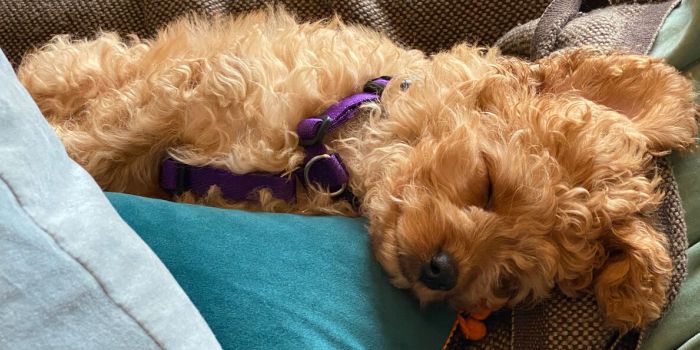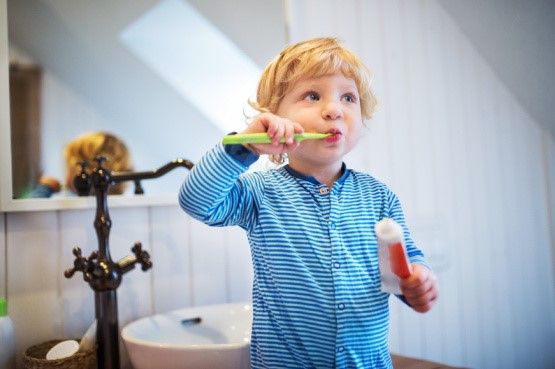How to sleep well when it is hot
Getting good quality sleep is important for your general health. We spend one third of our time sleeping. But what about when it’s hot outside? How can you get a good night's sleep when the temperature is rising? Here I will share my top tips for sleeping in hot weather.

Why is it harder to sleep when it is hot?
Your body goes through a series of changes in preparation for sleep. When it gets dark, your body makes more melatonin. This is a sleep hormone that signals to your body when it’s time to sleep, increasing tiredness. At the same time your body temperature also decreases.
So, when it’s hotter than usual – the higher temperatures can interfere with the natural cooling of your body before sleep. This can make it harder for you to fall asleep and may cause you to wake up more often too.
Waking up in the earlier stages of sleep because it's too hot can reduce how long you spend in slow wave sleep. This is also called deep sleep. If you don’t get enough, you may not feel as refreshed the following day. But you can make changes to both your routine and sleeping environment to achieve quality rest.
How can I sleep better in the heat?
Aim to keep your bedroom temperature at around 18 degrees. Any higher than 25 degrees might disturb your sleep. It may be hard to keep this temperature during a heatwave. Here are tips you can try to sleep better.
Keep the curtains shut during the day
You might normally keep your curtains open during the day to let the light in. But on hot days this can make your bedroom hotter. Also, it’s better to wait until evening before opening the windows. The temperature outside should be lower than it is indoors by then.
Try lightweight, natural bedding
Try to find bedding made from natural cotton or linen fabrics. These can keep you cooler than bedding made from synthetic materials such as polyester. Bamboo materials work well too.
Freeze your pillowcases
Some people find popping their pillowcases in the freezer for an hour or so before bed can help. This can make you feel more relaxed when it's hot and may even lower your body temperature a little too.
Have a bath
Before bed, have a hot or lukewarm bath (not cold). Your body temperature will go down when you get out the bath, this will help you to sleep.
Don’t exercise before bed
Exercise in general is great for improving your sleep quality. But exercising close to bedtime can be disruptive, especially when it’s already hot. Exercising can raise your body temperature and make it harder for you to fall asleep at your regular time.
Is it healthy to sleep naked?
Wearing less clothing is ideal. Some people may like to sleep naked. But wearing lightweight cotton pyjamas might help you stay cool and fall asleep. This is because they form a barrier against your skin – so if you are sweating, you may feel more comfortable.
Other tips for sleeping well
- Maintain a good sleep wake routine. You might be tempted to change your routine to get up later or go to bed earlier when it’s hot. But keeping a regular sleep wake cycle can send signals to your body that it is time to rest. This makes it easier to fall asleep earlier in the night. Watch our video 'Busting sleep myths'.
- Reduce bright light exposure in the evening. Your body prepares for sleep when it gets darker outside. When you use bright lights inside, this can confuse your body’s signals and make it harder to sleep at an earlier time.
- Give technology a rest before bed. Social media and news sites can be stimulating before bed. The information and images you are exposed to via these platforms can promote wakefulness and make you feel anxious or stressed. This in turn can interfere with your sleep. Reading a paperback or using a kindle may be a gentler way to relax before bed.
If you regularly struggle with falling or staying asleep, or if you are concerned about your lack of sleep, then see a doctor. They can help you take control of your sleep quality again.
Do you know how healthy you truly are? Bupa health assessments give you a clear overview of your health and a view of any future health risks. You'll receive a personal lifestyle action plan with health goals to reach for a happier, healthier you.
-
Sources Sources
- Energy levels. The sleep foundation. www.thesleepfoundation.org, Updated December 2023
- Vorster APA, van Someren EJW, Pack AI, et al. Sleep Health. Clin. Transl. Neurosci. 2024, 8, 8. Doi:10.3390/ctn8010008
- How to sleep when it is hot outside. The sleep foundation. www.thesleepfoundation.org, Updated March 2024
- Melatonin. The Sleep Charity. thesleepcharity.org.uk, updated December 2020
- Altena E, Baglioni C, Sanz-Arigita E, et al. How to deal with sleep problems during heatwaves: practical recommendations from the European Insomnia Network. J Sleep Res. 2023 Apr;32(2):e13704. doi: 10.1111/jsr.13704
- Purves D, Augustine GJ, Fitzpatrick D, et al., editors. Neuroscience. 2nd edition. Sunderland (MA): Sinauer Associates; 2001. Stages of Sleep
- Slow-Wave Sleep. The sleep foundation. sleepfoundation.org, updated May 2023
- The best temperature for sleep. The sleep foundation. sleepfoundation.org, updated March 2024
- Healthy sleep tips. The sleep foundation. www.thesleepfoundation.org, Updated December 2023
About our health information
At Bupa we produce a wealth of free health information for you and your family. This is because we believe that trustworthy information is essential in helping you make better decisions about your health and wellbeing.
Our information has been awarded the PIF TICK for trustworthy health information. It also follows the principles of the The Information Standard.

More general health advice articles
Did you find our advice helpful?
We’d love to hear what you think. Our short survey takes just a few minutes to complete and helps us to keep improving our healthy lifestyle articles.
Legal disclaimer
This information was published by Bupa's Health Content Team and is based on reputable sources of medical evidence. It has been reviewed by appropriate medical or clinical professionals and deemed accurate on the date of review. Photos are only for illustrative purposes and do not reflect every presentation of a condition.
Any information about a treatment or procedure is generic, and does not necessarily describe that treatment or procedure as delivered by Bupa or its associated providers.
The information contained on this page and in any third party websites referred to on this page is not intended nor implied to be a substitute for professional medical advice nor is it intended to be for medical diagnosis or treatment. Third party websites are not owned or controlled by Bupa and any individual may be able to access and post messages on them. Bupa is not responsible for the content or availability of these third party websites. We do not accept advertising on this page.







